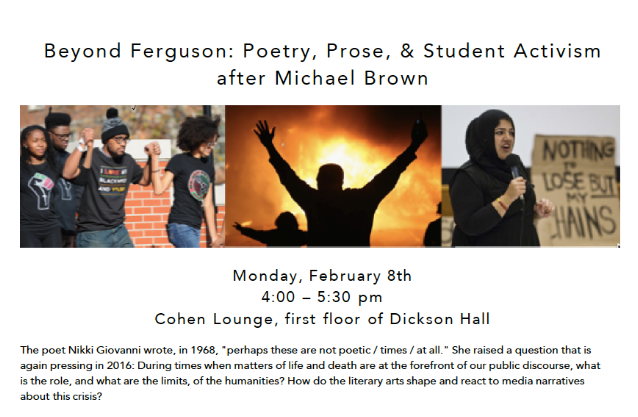On Monday, Feb. 8 in the Cohen Lounge, students and faculty came to listen to Jamila Lyiscott and Lavelle Porter discuss student activism, racial justice and how art intersects with it all.
Lyiscott and Porter shared their knowledge and experiences of being black in America in their respective spaces. Porter is a professor at the New York City College of Technology and a published author. Lyiscott is a spoken-word artist and assistant professor at Long Island University.
During the event, Lyiscott cited Lauryn Hill and Toni Morrison as her inspirations for the social justice work she does. She is also the director of Cyphers for Justice at Columbia University. For those who do not know, cyphers are events in which rappers and poets gather to express and show off their skills. Lyiscott described cyphers as an event where people gather and share information.
Lyiscott credited West Africa as the origin of cyphers. When she visited West Africa and stayed in a village, she noticed the members of the village gathering in circles to share information and it occurred to her that what she witnessed was a cypher.
Porter in turn addressed the concept of respectability politics, which is the idea that if a marginalized group of people act and dress accordingly, they will not be met with trouble. Porter dispelled that myth with examples relative to his profession as an educator with the story of Imani Perry, a professor at Princeton University who was arrested for an outstanding parking ticket from 2013. When taken into custody, she was handcuffed to a table. This narrative can be terrifying for black women in America, with the horrifying stories of Sandra Bland, Gynnya McMillen and the 13 black women raped and molested by former police officer Daniel Holtzclaw.
When the audience asked the panel what the present movement for racial equality should be called, the moderator listed a few titles, including “Black Lives Matter” and the “New Civil Rights Movement.” Porter thought that “Black Lives Matter” was an appropriate title for the movement, especially since it has caught on nationally. Lyiscott immediately replied, “Long overdue,” and explained that, regardless of what the movement is called, it needs to happen.
There was a video of police officers sharing their opinions and experiences with racial justice in their profession. Following the video, attendants were encouraged to submit questions to the panelists for further discussion.
One question asked Lyiscott specifically about Macklemore’s “White Privilege I” and “II,” and white supporters’ role in the movement. She responded that, while the song was great, it was also a form of “whitesplaining,” which is when black people continuously explain their issues and experiences to white people and are overlooked and unheard, but a white person utters the same narrative and all of a sudden, white people understand.
Events like Beyond Ferguson: Poetry, Prose and Student Activism after Michael Brown are necessary to bring attention to these issues. Awareness can lead to discussion, which in turn can lead to action. Topics such as racial justice can be difficult to talk about, but these discussions need to happen. Just as the panelists declared, these are not just black people’s issues, these are everyone’s issues.
This event was sponsored by the CHSS Foundation Fund, the Department of English and the Visiting Writers Committee.



